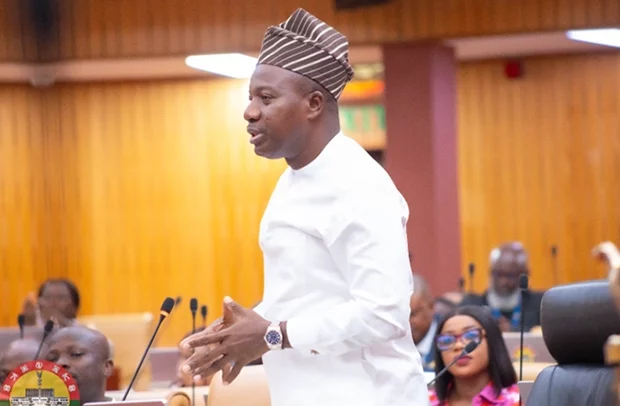The Majority Leader, Mahama Ayariga, yesterday rebutted criticisms from the Minority over the 2025 Mid-Year Budget Review, dismissing the Minority Leader’s “60:40 economy” tag as a diversionary tactic and instead praising the government’s fiscal discipline, social investment achievements, and international credibility.
Speaking on the floor of Parliament during his concluding remarks on the debate, Mr. Ayariga accused the New Patriotic Party (NPP) of attempting to rewrite history and conceal the mismanagement and political turmoil that defined the latter part of its administration.
He cited the 2022 internal rebellion within the NPP’s own ranks, where 88 Majority MPs petitioned for the dismissal of the then-Finance Minister, Ken Ofori-Atta, due to his “abysmal performance.”
“It’s astonishing to hear the Minority Leader now speak glowingly of the very Finance Minister they once mobilised against. Let’s not forget that it was under his leadership that virtually all social intervention funds were capped – the GETFund, the District Assembly Common Fund, the Road Fund, the Energy Fund. Every single one,” Mr. Ayariga said.
He contrasted that record with what he described as the NDC government’s track record of not only uncapping these funds but also making timely payments to ensure their effectiveness.
“We have uncapped them, sustained them, and paid them. That’s how to demonstrate real commitment to social intervention – not by launching flashy initiatives and starving them of funds,” he said.
Addressing the now-infamous “60:40” tag levelled by Minority Leader Alexander Afenyo-Markin, Mr. Ayariga described it as a mischaracterisation of a lawful decision made by the Attorney-General in the case of The Republic v. Kwabena Duffuor & 7 Others.
He clarified that the decision to discontinue prosecution was grounded in legal principles tied to significant fund recovery and not a corruption bargain, as insinuated.
Beyond rebutting opposition claims, the Majority Leader highlighted the strong vote of confidence Ghana has received from global institutions under the current administration.
He quoted the IMF’s Deputy Managing Director, who recently praised the Mahama government for taking “bold corrective actions” to stabilise the economy after major policy slippages under the NPP.
“The IMF, credit rating agencies like Fitch, and civil society groups are all saying the same thing – Ghana is on the right path. Fitch has upgraded our rating to B- with a stable outlook,” Mr. Ayariga stated.
He pointed to key highlights from the mid-year review, including a historic GH¢113.7 billion drop in public debt within five months; a payroll audit revealing GH¢150 million in unearned salaries, with 53,311 separated staff still on the government payroll and 14,000 unverifiable employees; and renewed efforts to populate the Sinking Fund, including both cedi and dollar deposits.
According to him, there is a shift toward more targeted infrastructure investment by prioritising a manageable number of stalled projects, adding that there are reforms in the energy sector to reduce reliance on expensive fuels by transitioning to natural gas, supported by projected revenue of GH¢2.9 billion from the Energy Sector Levies Act.
Mr. Ayariga emphasised that the government’s overarching theme was fiscal discipline, noting that Ghana’s fiscal deficit had narrowed from 10.7% in 2022 to 1.1% in 2025, with inflation dropping from 54% to around 23% and debt-to-GDP falling from 84% to 43.8%.
“Yes, we are not spending – because we refuse to repeat the wasteful excesses of the previous administration. We are restoring confidence in the economy not by slogans, but through disciplined action,” he said.
Mr. Ayariga reminded the House that the country’s current economic recovery was not accidental, but the result of deliberate reforms, prudent financial decisions, and a determination to build sustainable foundations for growth.
By Ernest Kofi Adu, Parliament House


